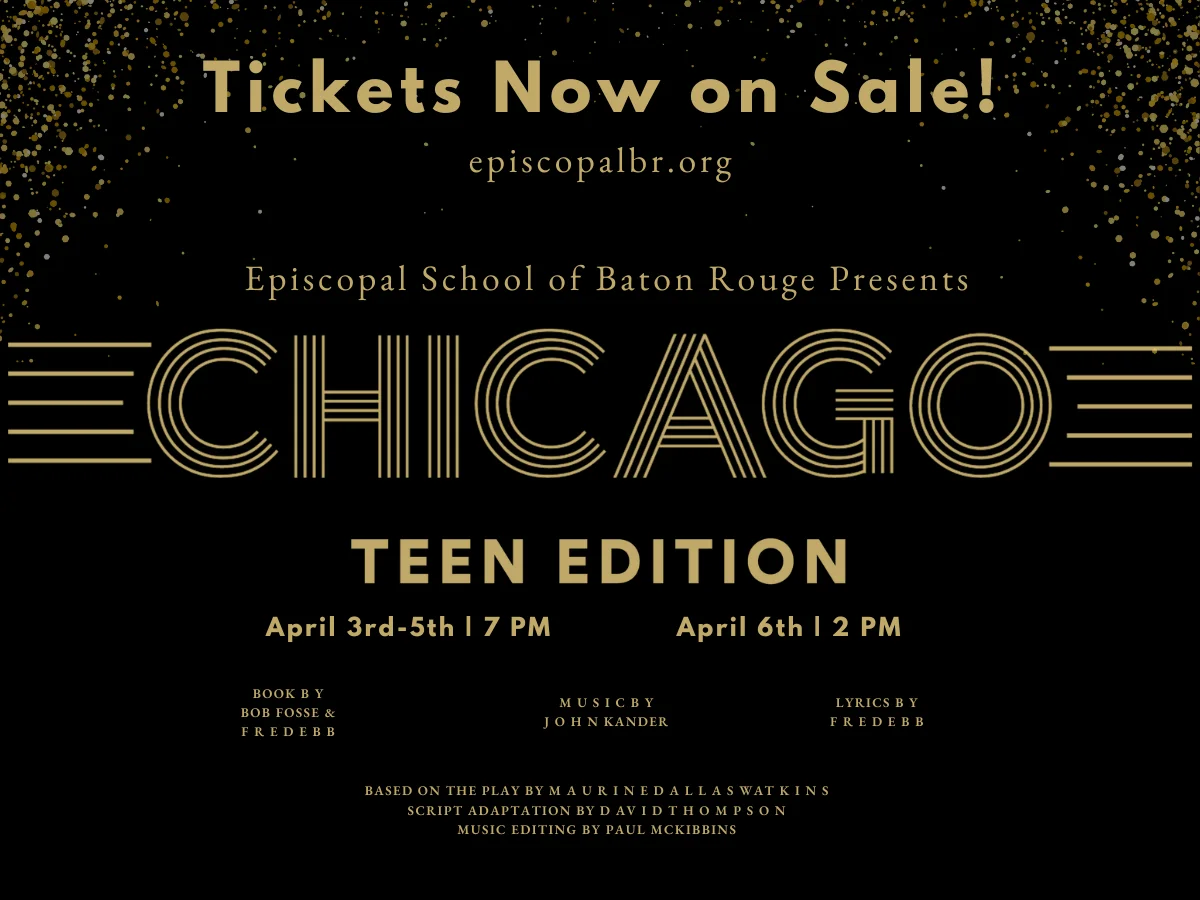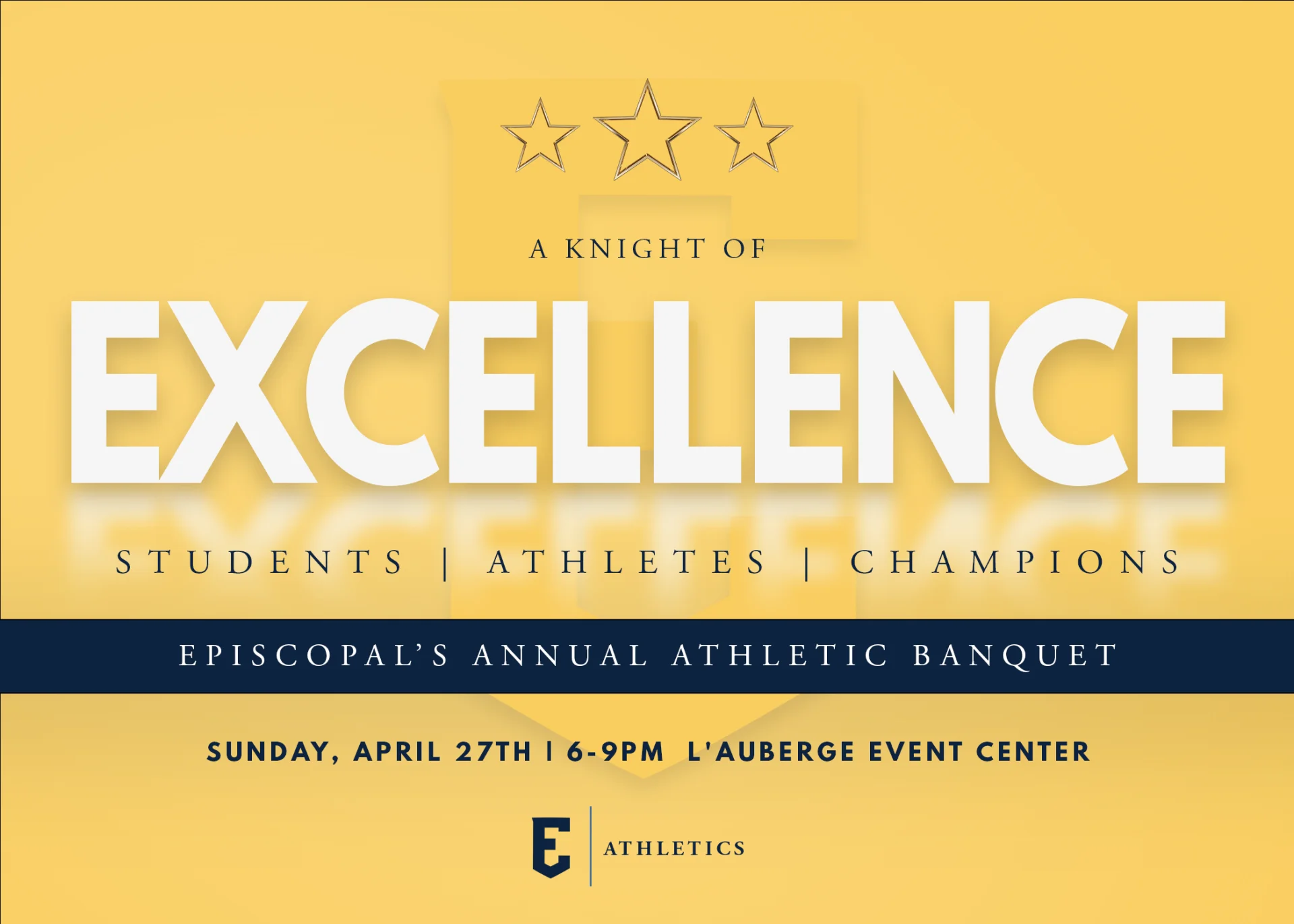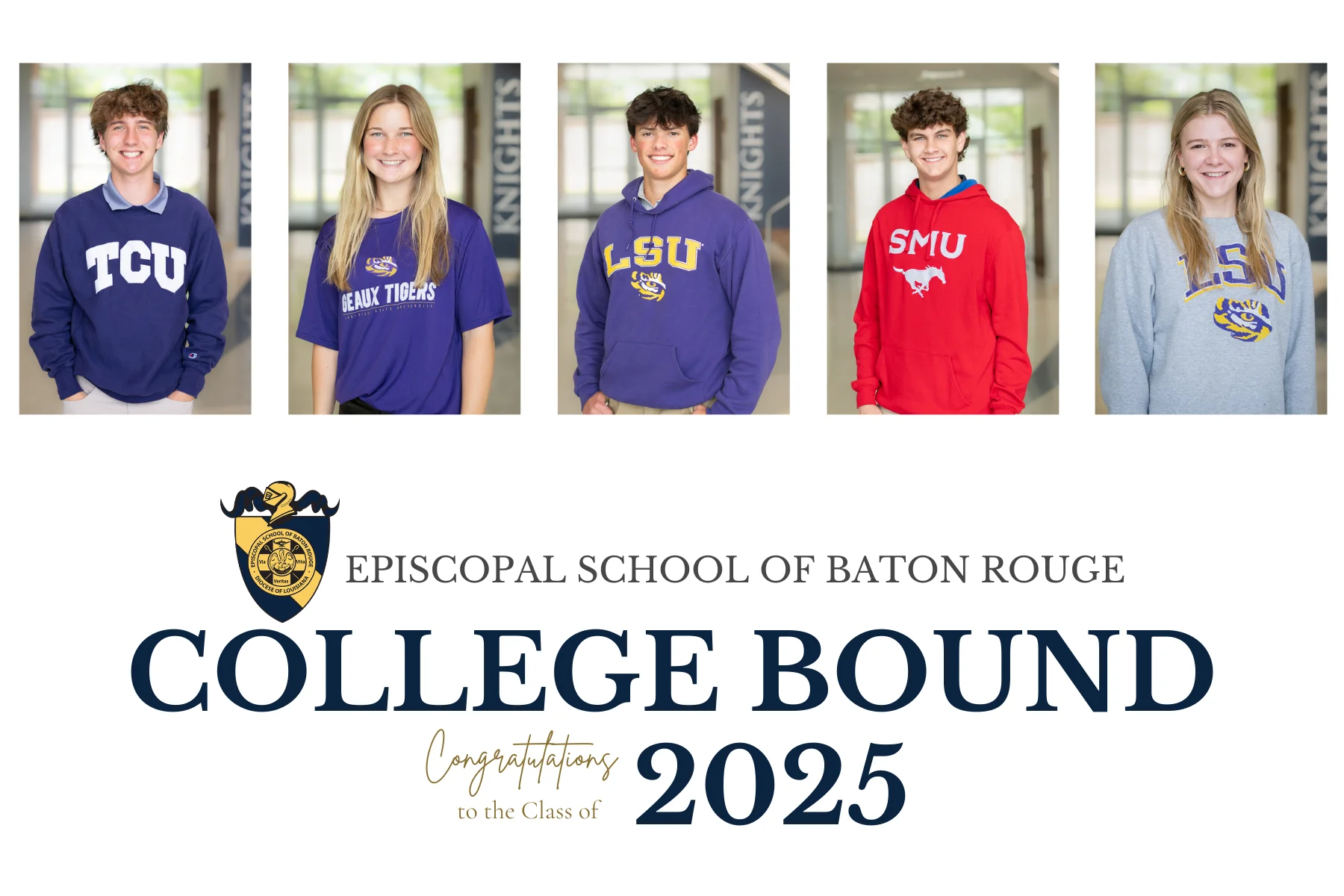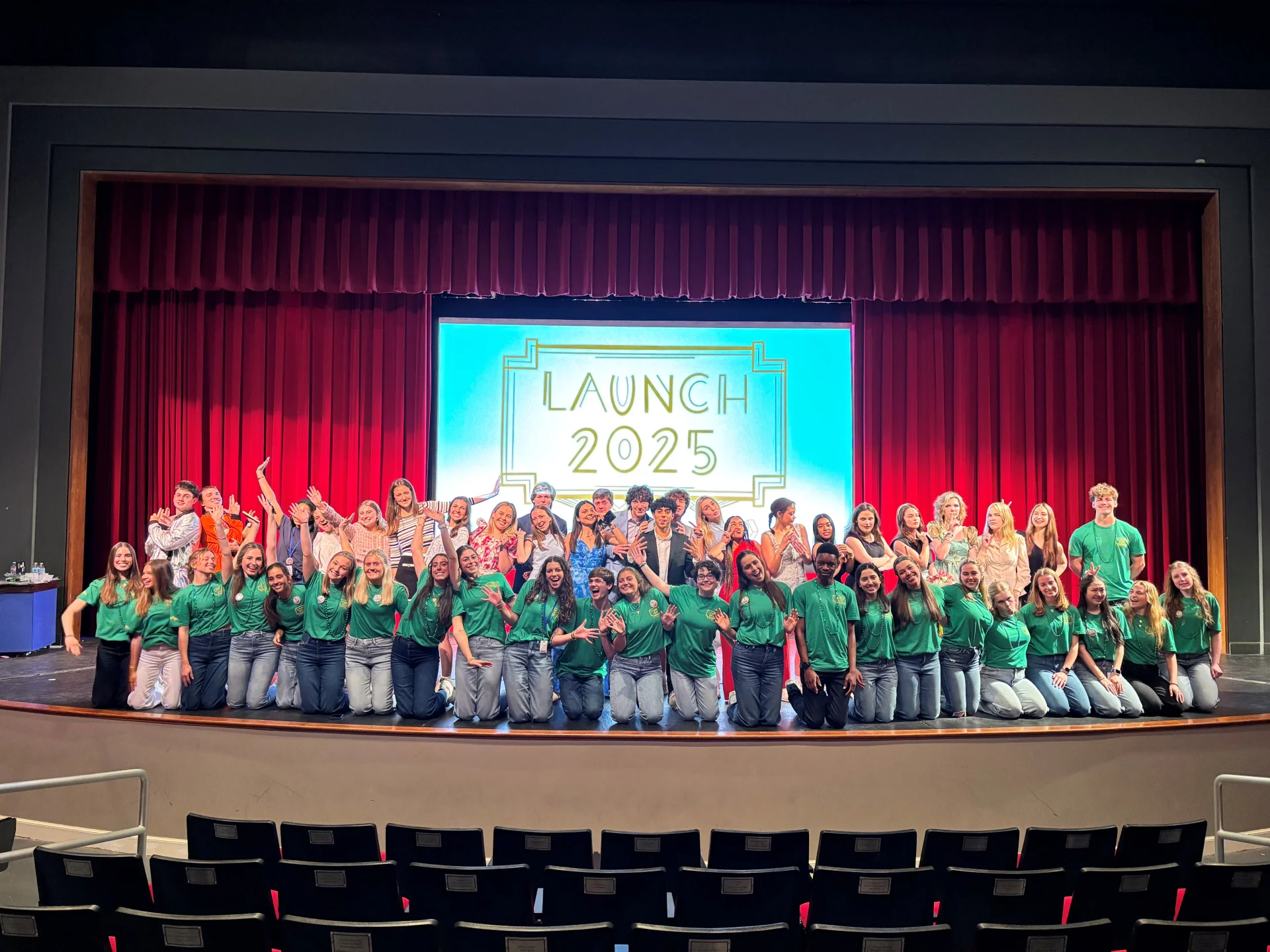- Admission
- Discover Episcopal
- Our Program
- Athletics
- Arts
- Spirituality
- Student Life
- Support Episcopal
- Alumni
- Parent Support
- Knightly News
- Contact Us
- Calendar
- School Store
- Lunch Menu
- Summer Camps
- Knight Under the Stars
- Chicago Tickets
- PowerSchool Notice
« Back
The Extroverted Teacher
October 12th, 2017

The essence of Rebecca Kuhn is this: center stage smoke machine swirl straight out of a Korean pop band; rocker chick in black business casual (sensible yet dramatic); spotlight and finger--same trajectory--gesturing toward something larger, some greater existential meaning, or maybe...Kansas?
Herein lies the American teacher abroad, the “We’re-not-in-Kansas-anymore,” “If It Makes You Happy” Sheryl Crow cover belting, exhibit A: The Extroverted Teacher.
This version of Episcopal’s Social Studies Chair might not seem completely far-fetched. While on a typical day she is not fronting for a Korean-ballad-American-90s pop-cover faculty band, Kuhn plays the role of gregarious, bubbly lead well. But, this sort of confident risk-taking is something that Kuhn had to learn over time and over many miles.

 “I was the girl who came home from day camp,” Kuhn says. “Like, I was physically ill from homesickness. Third-grade-Rebecca was the girl who came home from Girl Scout Camp early.” So, moving to South Korea after graduate school and staying six years rocked this previous self-narrative to the core. Thousands of miles away from family, not to mention the likely absence from holiday celebrations at home (“Do you know how big of a deal the 4th of July is in a town the size of Sterling, Kansas!?”) was a huge adjustment for someone like Kuhn.
“I was the girl who came home from day camp,” Kuhn says. “Like, I was physically ill from homesickness. Third-grade-Rebecca was the girl who came home from Girl Scout Camp early.” So, moving to South Korea after graduate school and staying six years rocked this previous self-narrative to the core. Thousands of miles away from family, not to mention the likely absence from holiday celebrations at home (“Do you know how big of a deal the 4th of July is in a town the size of Sterling, Kansas!?”) was a huge adjustment for someone like Kuhn.
Kuhn and her husband, Dr. Alan Newton, had spent five years in Ft. Lauderdale, Florida, before transferring abroad. Newton was teaching at the Pine Crest School and Kuhn enrolled in a PhD program at Florida Atlantic University. While preparing for her dissertation defense, Kuhn substitute taught at Pine Crest, eventually coming on full time as a History and Journalism teacher. “I volunteered to chaperone a debate competition,” she remembers. And while many adults might find that sort of round-the-clock supervision of and engagement with adolescents to be a challenge, Kuhn found it exhilarating. She realized that she absolutely loved the high school setting. “This is where I’m needed,” she says.
When Kuhn and Newton were approached about a teaching opportunity in Korea, they realized the timing was right to take a risk. “It was chaos when we arrived,” Kuhn notes. The school that hired them was in the process of beginning a school-within-a-school for Korean students interested in pursuing selective colleges in the US after high school graduation. The concept was to emulate a Western boarding school experience, and they started small--just 20 per grade. Kuhn recalls both the optimism and frustration involved in building a school from scratch. In many ways, continuing her work with high schoolers was enormously rewarding. In fact, the infamous Episcopal Tea Club was built upon a similar experience Kuhn had with her students in Korea. What began as a traditional Korean tea ceremony evolved into a slowed-down space for both introspection and spirited dialogue. “Drinking tea is civilized, calming, soothing,” Kuhn says. “Talking about some issues can be tough. Conversations can be fraught.” But bringing tea into the mix created what Kuhn describes as a “meditative experience.” Students worked through complex personal situations: the only son in a family, for instance, felt immense pressure to find the right college, meet his potential, and in his words, “be the family hope.” There, among friends and warm mugs of tea, he wrestled with the complicated intersection of expectations and choice. Students debated ethical issues like corporeal punishment and dissected the post-modern philosophical arguments of Derrida. These are the moments of teaching that Kuhn finds especially inspiring. The concept of “the whole child” (what eventually drew her to Episcopal) is important to Kuhn. Happiness, growth, rest, not “unhappy study robots” as she considers the alternative.


Yet, her time in Korea also revealed a mindset that compromised that mission of caring for the whole person. Her biggest challenges weren’t students who seemed apathetic or shirking their potential. Rather, she worried for the students who sought praise for getting three hours of sleep (better than most nights). She worried for parents who measured success only by acceptance into an Ivy League. Kuhn’s not-in-Kansas-anymore homesickness grew, and her desire to find a school with a personalized student approach became her mission. So, in 2015 after planning and preparing to return to the States, Kuhn made her final purchase, a traditional Korean tea set, and journeyed home.
Dr. Kuhn believes in fun. She believes in adventure and risks and navigating the joyful angst of adolescence with her students. Her interdisciplinary graduate work lends itself well to caring for the intricacies of teenage development. Kuhn merged a passion for social sciences--sociology, government, economics and politics--with religion and film studies and learned the tough work of “writing on the boundaries of the humanities and social sciences.”
And isn’t that what secondary education, in its most idealistic form, can do best? Blur the lines between discrete disciplines to see the interconnectedness between issues? Prepare young people to synthesize concepts from a deep toolbox to problem solve and make the world better?
Dr. Kuhn believes in fun. She believes in adventure and risks and navigating the joyful angst of adolescence with her students. Her interdisciplinary graduate work lends itself well to caring for the intricacies of teenage development. Kuhn merged a passion for social sciences--sociology, government, economics and politics--with religion and film studies and learned the tough work of “writing on the boundaries of the humanities and social sciences.”
And isn’t that what secondary education, in its most idealistic form, can do best? Blur the lines between discrete disciplines to see the interconnectedness between issues? Prepare young people to synthesize concepts from a deep toolbox to problem solve and make the world better?
Dr. Kuhn, qualified to teach at the university level, never felt compelled to pursue a professorship. It is here, in high school, that Kuhn feels most able to promote that interdisciplinary pursuit that inspired her as a student and allowed her to seek understanding of the human condition. It is here that she says fun renews every year with her new 9th grade students, that she realized, as an extrovert, she could “have more insightful conversations with young people, more intellectual stimulation” than she might in another setting.
With a global perspective, Dr. Kuhn says she is intentional with her language. During a lecture while pointing to another continent, Kuhn makes a point to say, “when” not “if” as she helps students consider the places they’ll go, the people they’ll meet. “I build in a narrative that they will act on global mindedness.”
For Dr. Kuhn, home will always be in Kansas. But, for her students she is a study in the sort of self-discovery that happens when you take a risk, grab the mic, and understand that the world is bigger, grander, than you could have ever imagined.
With a global perspective, Dr. Kuhn says she is intentional with her language. During a lecture while pointing to another continent, Kuhn makes a point to say, “when” not “if” as she helps students consider the places they’ll go, the people they’ll meet. “I build in a narrative that they will act on global mindedness.”
For Dr. Kuhn, home will always be in Kansas. But, for her students she is a study in the sort of self-discovery that happens when you take a risk, grab the mic, and understand that the world is bigger, grander, than you could have ever imagined.

Katie Sutcliffe joined Episcopal in 2011 and is currently the Director of the Writing Center and Thesis Program, as well as the co-creator of LAUNCH, Episcopal’s annual TEDx-style student-planned and executed showcase of ideas and projects. Katie holds a Bachelor of Arts in English (Writing) from DePauw University, an MFA in Creative Nonfiction Writing from the University of Pittsburgh and was a 2005 Teach For America corps member. Katie currently serves as the Southeast Representative for the Secondary Schools Writing Center Association Board. She has taught English and writing courses for middle and high school students, gifted students and even continuing-education adults. She’s passionate about research and writing that have practical implications for understanding and addressing real world challenges.
The Episcopal School of Baton Rouge 2025-2026 application is now available! For more information on the application process, to schedule a tour, or learn more about the private school, contact us at [email protected] or 225-755-2685.
Posted in the categories All, The Teachers' Lounge.
Other articles to consider
 Mar27Episcopal Presents "Chicago: Teen Edition"
Mar27Episcopal Presents "Chicago: Teen Edition"Don’t miss the Upper School spring musical “Chicago: Teen Edition”! With dancing, singing, a true crime theme and a 12-piece professional orchestra, this PG-13 presentation is sure to impress. Shows run April 3-6—get your tickets today!
See Details Mar27Episcopal Announces "The Knight of Excellence" Athletic Banquet
Mar27Episcopal Announces "The Knight of Excellence" Athletic BanquetCelebrate Episcopal's top athletes at the Knight of Excellence on April 27th! Join us for an inspiring evening of awards, recognition and community.
See Details Mar26College Announcements 3.28.25
Mar26College Announcements 3.28.25Please join us in congratulating members of the Class of 2025 as they announce their college enrollment decisions.
See Details Mar25A Community of Learners Takes the Stage at LAUNCH Day 2025
Mar25A Community of Learners Takes the Stage at LAUNCH Day 2025LAUNCH Day 2025 celebrated student-driven research, innovation and a close-knit community of learners. See how seniors showcased their hard work, creativity and big ideas on stage.
See Details
Categories
- All
- Admission
- Athletics
- College Bound 2019
- College Bound 2020
- College Bound 2021
- College Bound 2022
- College Bound 2023
- College Bound 2024
- College Bound 2025
- Counselors Corner
- Episcopal Alumni
- Giving
- Head Of School
- Lower School
- Middle School
- Spirituality And Service
- Student Work
- The Teachers' Lounge
- Upper School
- Visual And Performing Arts
Recent Articles
- 03/27/25Episcopal Presents "Chicago: Teen Edition"
- 03/27/25Episcopal Announces "The Knight of Excellence" Athletic Banquet
- 03/26/25College Announcements 3.28.25
- 03/25/25A Community of Learners Takes the Stage at LAUNCH Day 2025
- 03/24/25Congratulations to the 2025 Newton Distinguished Faculty Award Honorees!
- 03/21/25College Announcements 3.21.25
- 03/21/25Chase Cresson to Play Football at Morehead State University
- 03/20/25Anna Kate Yale to Compete at Harding University
- 03/13/25From Museums to READBowl: Episcopal Students Embrace the Joy of Learning
- 03/13/25Expanding Academic Support: ARC Fellows Mentor Lower School Students











